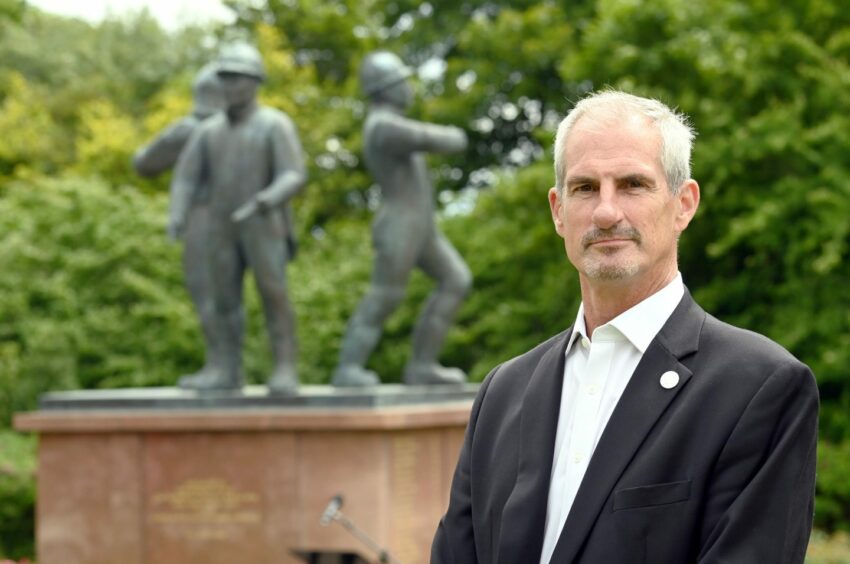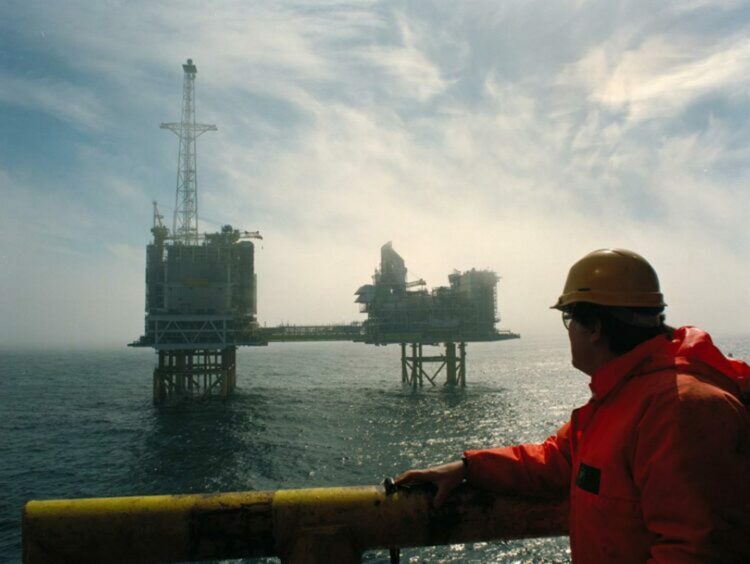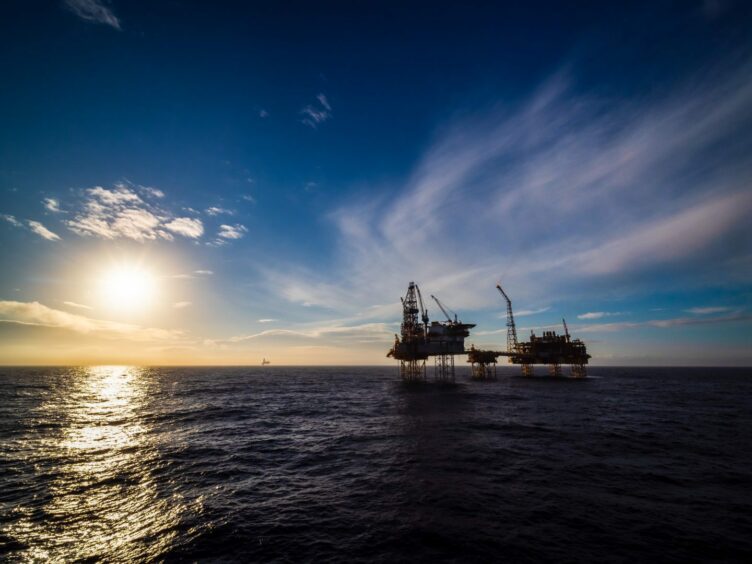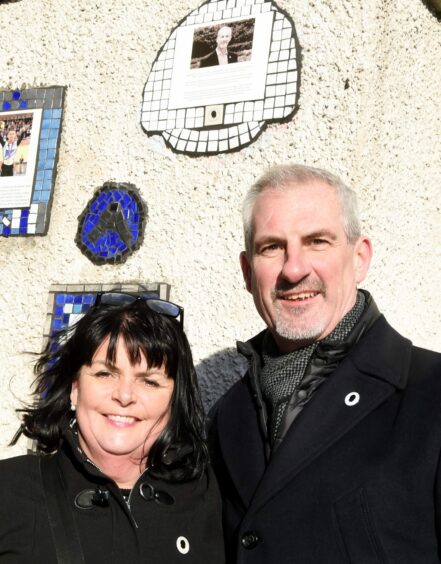
While he has held the reins at Step Chance in Safety for the last four years, in reality Steve Rae has been involved with the organisation since the mid-noughties.
“I was first approached by Step Change’s then chairman, Gary Luquette, in 2005,” he explains.
“Gary was Chevron’s managing director in the UK at the time, and I was absolutely honored to be asked to start with. Then when I realised the commitment, I thought that is exactly what leaders need to do, they need to step up and engage.
“My background fitted well with that and from 2005 to 2010, as I was preparing to go overseas, I was on the leadership team – it was an exciting time.”
Rae’s ‘background’ will be known to many in the oil and gas industry, particularly in the north-east of Scotland where he currently bides.
He was one of 61 workers to survive the Piper Alpha disaster that shook the North Sea, and Aberdeen in particular, in 1988.
On July 6, the platform, about 125 miles from the Granite City, exploded, killing 167 men and changing the industry forever.
Rae survived Piper Alpha because he followed his instincts, rather than the rules, and he has spent the subsequent years telling his story, to try to ensure lessons hard learned are not repeated.
His experiences and commitment to storytelling made him a natural fit for Step Change and in July 2019 he took up the position of executive director at the member-led group.
What followed was an “incredible” and “successful” four years for the organisation, which marked its progress with a 25th anniversary celebration in 2022.
Calling it a day, kind of
But as the old saying goes, all good things must come to an end.
Rae recently announced his intention to retire from full time work, meaning he will leave his current role at Step Change in the coming months, once a replacement is found.
“It was a really hard decision for me because I’m passionate about what I do, but the executive director position needs some to work on it full-time,” Rae explained.
His plan is “not to retire completely though”, and he will still be on Step Change’s board and remain involved in an advisory capacity.
Rae said: “When I originally took the position up, I always envisaged it would be for four to five years given my age. I said then I thought this would be a perfect retirement gig for me as a way to give back to the industry.”
Challenges and achievements
One thing that Rae – and everyone else for that matter – did not account for was Covid-19 and the almost overnight switch to home working.
“It didn’t stop us doing our business, it just made it immensely difficult to do so. One of the biggest reflections from my time would be that adjustment to working from home when your model is face-to-face engagement – I think we did exceptionally well.
“Since 2019 we have done some incredible initiatives, and I genuinely believe that Step Change is now foremost in the minds of industry. The organisation’s brand reputation has been strengthened, and we’ve produced some really high quality resources.
“There was a shuffle of the board, and of the leadership team, with the aim of pushing safety at the workforce end. That has been a success, particularly in the core business of oil and gas offshore, but also in the renewables space.
“Step Change has been globalised – we’ve got interests in New Zealand, Australia, South America, Norway – and I think, really, we’ve done an incredible amount of work.”
The wheels are already in motion to find a successor, but the day-to-day activities of the group remain and Rae is keen to highlight the ongoing ‘process safety leadership survey’.
Working right up until the end
Step Change wants to help firms identify their strengths and weaknesses, with a view to sharing good practice, areas of concern and learning collectively.
Results of the survey are due imminently, and follow up work will be carried out through the group’s ‘Major Accident Hazard Understanding’ unit.
On a personal level, Rae has no plans to call time just yet on the public speaking that has made him a familiar face in the oil and gas industry.
“I’ll continue to do what I do, but I’ll do it on a more ad-hoc basis,” he explained.
“Talking, engagements, getting offshore in front of folk – I will do all of that for as long as I’m physically fit enough to do so.”
Running the rule on North Sea safety
Indeed Rae’s public speaking and sharing of his experience on Piper Alpha is as important as ever, amid concerns that safety standards in the North Sea are slipping.
Far from being general anxiety, it is a fear backed up by the rate at which the offshore watchdog has been dishing out improvement notices.
Rae said: “I genuinely think, and the statistics will prove this, that work offshore was practiced more safely during Covid-19, when platforms were operating with skeleton crews and people were acutely aware they couldn’t be close together.
“Post-Covid, I’d say for the last year now, we’ve seen a slow increase in return to activity, people not necessarily having to follow protocols offshore, increased staffing – all these things impact on safe operations.
“We’re seeing people coming back to the industry that haven’t worked in it for maybe two years; that creates a question around competence. Others have also found alternative employment so there’s a lack of skilled people. There’s also more work to do because so much of it was postponed.
“If you take these three things together – shortage of skills, increase in activity, and the backlog of work – they will typically bring additional risk.”
North Sea must ‘step up efforts to liquidate’ maintenance backlog
Particular attention is being given to the swelling surfeit of offshore maintenance work – a hangover of the pandemic – with claims from union bosses that upkeep work isn’t being done. There is also the disruption caused by the North Sea’s countless strikes in 2021 and 2022 to consider.
What is indisputable is that the backlog must be dealt with, and Rae stressed the need for the North Sea to ensure all work is “managed effectively”.
“What does that mean? It means that you consider your unplanned maintenance right down to deferred maintenance, and target those that are safety critical and have the potential to escalate if left untouched. That is the business that has to be attended to first.
“Strikes are when you’ve got cost-of-living increases going on, and industry needs to be cognisant of issues that are safety critical. We have to step up our efforts to liquidate some of the backlog, and that will require a ramp up in workforce at some point.”
A legacy of storytelling
For Rae, he is now entering the final few months of his full time career, one that has taken him to Brazil and the US, for companies including Well-Safe Solutions, Noble Drilling and Archer.
Semi-retirement means a chance to “focus on my Pound for Piper chairmanship”, as well as to spend time with his extending family.
“We (he and his wife MaryAnn) have five grandchildren currently, and we’ll have seven by the end of the year. I need to give back some of my time to my family and my wife.”
An opportunity to take something of a backseat will be a welcome load off for Rae, who has spent so much of his life ensuring that the mistakes of the past do not fade from memory.
On what he hopes his lasting mark on the oil and gas industry will be, as he readies to pass on the Step Change in Safety baton to his successor, his response is clear.
“I’d like to think that my legacy will be that I encouraged and promoted the need for us to reflect, and continue to relearn the lessons that we’ve had in the past. It is not just Piper Alpha; we’ve had aviation disaster and other major accidents that have affected our business.
“We have to take conscious time to revisit those, and to make sure we’re not forgetting what was learned from them. As we change through maturity and new generations come into our business, they don’t necessarily know what went before them – that’s something that’s pretty prevalent just now.
“I do a lot of talks, and I ask the audience in the room how many are aware of Piper Alpha and the consequences and what we’ve learned from it. I’m seeing fewer and fewer people putting their hands up.
“That why we have to be ready to relearn these lessons, rather than let them pass by. I hope we keep storytelling and learning.”
Recommended for you


 © Supplied by PA Archive
© Supplied by PA Archive © Supplied by DCT Media
© Supplied by DCT Media © Supplied by BP
© Supplied by BP © Shutterstock
© Shutterstock © Supplied by DCT Media/Jim Irvine
© Supplied by DCT Media/Jim Irvine